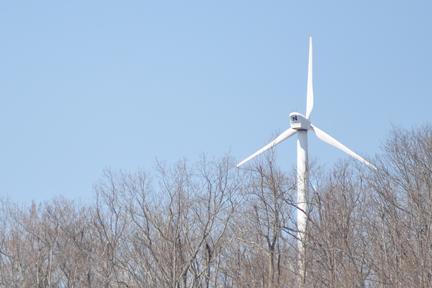
Access to clean drinking water was the top local environmental concern for students, faculty and staff, according to a study conducted by sustainability majors at Appalachian State University.
The 24-question survey was conducted online Feb. 12-27, utilizing student, faculty and staff to elicit responses from 854 volunteers.
“One of the main reasons for developing this survey was for us to see how accurate ASU’s reputation of being environmentally aware really was,” said David Valder, junior sustainable development major.
The official report defines sustainable development as the combination of a healthy environment with thriving ecosystems, an economic system that engages local populations, and social justice and equity.
“The survey showed that many individuals consider sustainable living as an important part of daily life, regardless of their level of involvement in SD initiatives or activism,” sustainable development professor Laura England said.
The results of the survey show that the university is aware of the linkage between the environment and the economy. More than 85 percent of respondents agreed that the sustainability of a thriving economy is dependent upon a healthy environment and equitable society.
However, 30 percent of respondents said that they thought global economic growth was important to SD, when in fact it is antithetical. This result demonstrates the university’s incomplete understanding of what SD entails.
The majority of respondents expressed concern for the environmental sustainability issues, particularly regarding climate change and water pollution, according to the report.
Similarly, climate change was ranked the top environmental concern on a global scale, with 67 percent of respondents agreeing that it is among the most serious threats to health and safety.
However, only 23 percent were aware of the 350ppm CO2 limit scientists agree is safe for the Earth’s atmosphere; even less were aware that the current CO2 levels have surpassed 390ppm.
Less than 50 percent of respondents were aware of existing sustainability initiatives on campus, such as the university’s sustainability graduation pledge, commitment to becoming a zero waste campus by 2022, goal of achieving climate neutrality by 2050, and $10 student fees each semester that go toward renewable energy projects.
Respondents unanimously agreed that consideration of sustainability influences their day-to-day activities.
“The results show that both students and faculty at ASU have a strong interest and concern regarding sustainability issues, but that there is a disconnect from the information reaching them,” said Dallas Pitts, a senior in the class that conducted the survey. “Hopefully participants in our study will be inspired to take it upon themselves to become more informed and aware of such issues.”
Story: NOLEN NYCHAY, Intern News Reporter
Photo: JUSTIN PERRY, Staff Photographer

